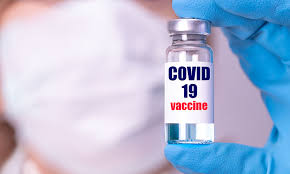INTERNATIONAL humanitarian agencies have expressed their wish to see African countries accepting donated Covid-19 vaccines in order to achieve herd immunity and protect their citizens from the coronavirus.
Africa has the lowest rate of vaccination compared to other continents with only one percent out of the 1.1 billion people vaccinated, while demand for Covid-19 vaccines in the continent remains high.
In June, Zimbabwe’s government turned down an allocation of Johnson and Johnson Covid-19 vaccines which were set to be delivered in August, saying it was not ready to receive the shots due to challenges in the country’s cold chain infrastructure and noted that local experts were still assessing the drug’s side effects.
Read: https://cite.org.zw/zim-not-ready-for-johnson-and-johnson-covid-19-vaccine/
Johnson and Johnson’s vaccines were acquired through a Covid-19 vaccine procurement Agreement on March 28, 2021, by all African Union (AU) member states, through the African Vaccine Acquisition Trust (AVAT).
Responding to questions at a Digital Press Briefing on United States’ Support for Covid-19 Vaccine Manufacturing and Production in Africa Thursday, State Department Coordinator for Global Covid-19 Response and Health Security, Gayle E. Smith, said multiple agencies and departments were mounting a comprehensive response to provide vaccines and deal with Covid-19 impacts be it humanitarian or economic.
“We are working closely with both COVAX (the international vaccine platform that seeks to provide Covid-19 vaccines to developing countries over the world) and the African Union. Our experience to date is – has been that there is a tremendous demand, as I am sure you all know very well from your own reporting, for vaccines across the continent,” she said.
“There may be some countries that do not wish to accept vaccines. Hopefully they will change their minds over time because, again, I think we all know that our individual and national safety depends upon our regional, continental, and indeed, global safety.”
The US official emphasised that immunity depended on many people vaccinating so countries who rejected vaccines must settle those issues with suppliers.
“So whether Zimbabwe has refused the delivery of vaccines from the African Union, I think, is between them and the AU, but again, our experience has been that the demand from African countries is very high and we’re doing everything we can to meet as much of that demand as possible,” Smith said.
Smith added that they were also working with COVAX, United Nations Children’s Fund (UNICEF) and United States Agency for International Development (USAID) to enable African countries to improve on their cold chain or refrigeration capacity so that a diverse mix of vaccines can be delivered.
“Because these vaccines are highly effective, but delivering vaccines is a complicated process, and we’ve found that even in the United States. Now, for some of these vaccines, the cold-chain storage is easier than for others, and in many countries, like Kenya, with a long track record of delivering other vaccines over the years, managing some of those vaccines is relatively – and I’ll be careful in saying that- relatively easy because there is the infrastructure to manage that,” said the US official.
“For those vaccines that require more sophisticated levels of cold-chain storage, we are working with COVAX, UNICEF, our USAID missions are working on this, to enable that capacity in countries so that a diverse mix of vaccines can be delivered. You are absolutely right to point to it as a vital piece of the equation. That’s why we are focused on it with our partners.”

